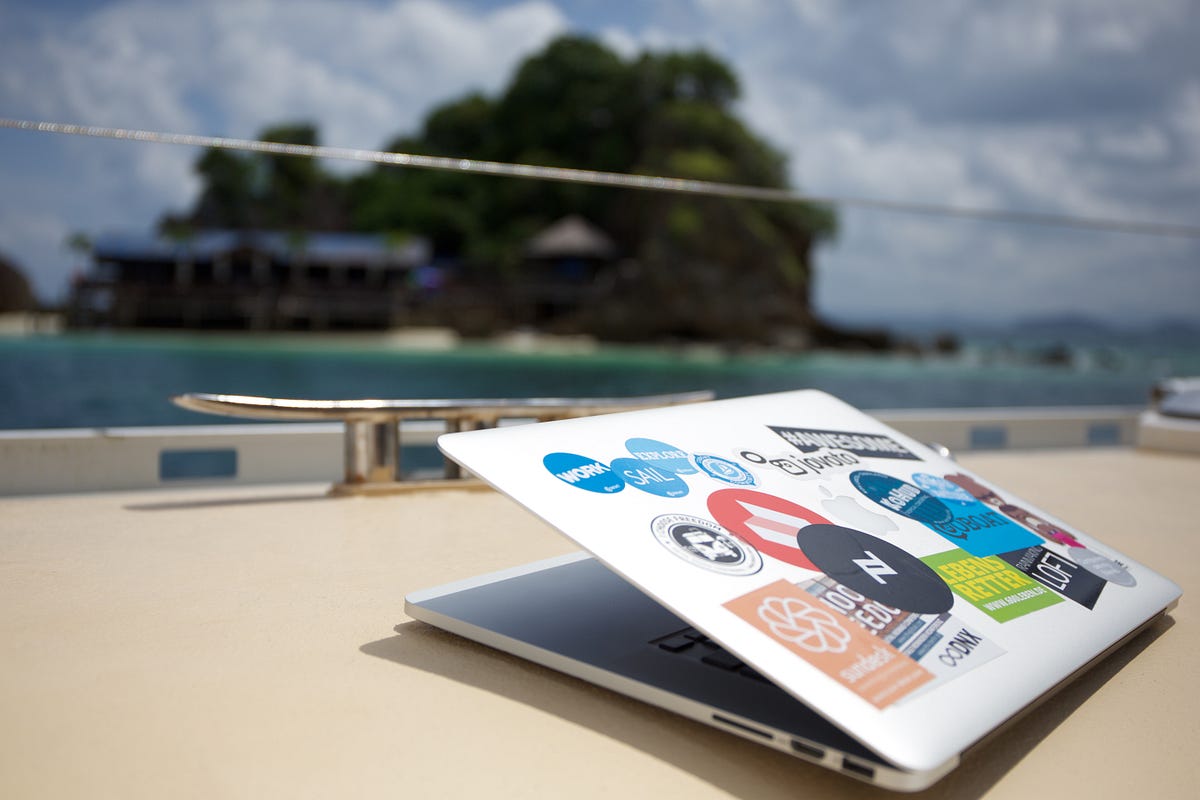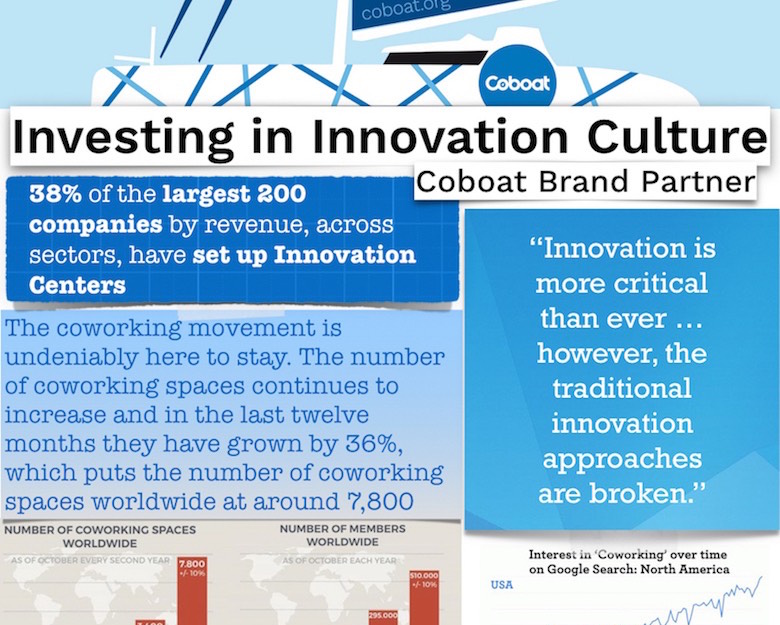Traditional innovation processes for corporates are failing. Rapidly moving markets and the fast pace of technology development have cultivated a trend of fearless startups thriving in this dynamic environment, living and breathing innovation. For the more traditional corporates this change in pace poses a challenge.
A recent study by Capgemini Consulting revealed that only 5% of R&D staff feel highly motivated to innovate. In certain sectors, more than 85% of new products fail and an overwhelming 90% of companies consider they are too slow in launching new products and services.
The remedy isn’t as simple as increasing the spend or indeed, even introducing investment in innovation. Capgemini explains that the problem lies in the weaknesses of traditional innovation approaches. Organisations have been forced to explore different avenues and seek new inspiration to remain relevant in today’s and tomorrow’s markets.
What they have discovered is a rapidly growing work trend often cited as the future of work: location independent coworking.
Coworking is the gathering of a group of people to work together but not for the same company, instead of working remotely in separate offices or from home. It suits independent professionals, telecommuters and others who work from anywhere allowing them to come together in one space. According to a recent survey, coworking spaces have grown by 36% in the last twelve months, which puts the number of coworking spaces worldwide at around 7,800. Today, about half a million people are working in coworking spaces.
In 2016 the coworking community will see a new introduction to this space. The founders of “Coboat” have embarked on a landmark project in the coworking sphere. Coboat is the first Coworking space on a boat, a floating lab for innovation culture with contributors from all over the world. It immediately caught the imaginations of people, businesses and the mediaworldwide.
Start ups and corporates alike are successfully fuelling their innovation culture by tapping into the skills and knowledge of coworking communities
Harnessing the mindset of a startup, some corporates are investing in innovation hubs where small teams work and think, free from corporate constraints; agile, nimble, responsive and innovative. The Lufthansa Innovation Hub is a startup contained within the corporate. The team consists of 15 people, 50% from Lufthansa, 50% from the Berlin tech ecosystem and coworking campus, The Factory. “We wanted people with a capability to bridge the gap between corporate and startup world, so besides skills we look for personality”, highlights Lufthansa’s Katrin Zimmermann. The goal is to leverage the ecosystem of the coworking space, developing a culture of innovation, mixing skill sets, backgrounds and experiences.

For brands wanting to escape mundane innovation processes and tap into networks of talent, coworking spaces may be the next new thing for corporate sponsors. Mattia Sullini, Italian coworking space owner likes the idea of spaces becoming conduits between brands and their customers to reach the remote and location independent generation.
Oceanvolt, an organisation focused on producing electric motor and energy management systems, has partnered with the Coboat coworking space to supply their electric propulsion and energy regeneration technology. A shared ethos has made for a strong partnership. Coboat provides Oceanvolt with a global platform to showcase their technology, demonstrating proof of concept to the world and opening people’s eyes to new possibilities in sailing engine technology.
Oceanvolt’s CEO Timo Jaakkola says “being a partner of this groundbreaking mission has not only opened a door to an ecosystem of innovation and a global community rich in skills and experience, but it tells our story and shares our mission inspiring many more to make greener choices.”
“Coboat is a green and hightech communication platform with innovative partnerships, both technological and content wise”, says Coboat’s Gerald Schömbs. “It will serve as a marketing and research platform for selected products and services, opening the door to elusive nomad workers.”
What happened to those organisations who missed the boat last time?
The lifespan of companies in the Fortune 500 radically declined in recent decades. According to Forbes, it took 28 years for half of the 1955 Fortune 500 class to disappear. Half of the class of 1995 were gone in only 15 years.
Forbes refers to the current business period as the ‘most disruptive period in business history.’ The choice is, be disrupted or be the disruptee and innovation lies at the very centre of this decision.
They say, ‘the ultimate way to stimulate innovation is to change the corporate culture, so it begins to happen naturally and regularly.’ A new type of partnership, where organisations and coworking spaces join forces, could be just the key for those companies looking to transform their innovation processes and culture.
Learn about the Coboat project, ethos and mission here. If you share the vision and would like to be involved click here.
Article first published on medium.com



